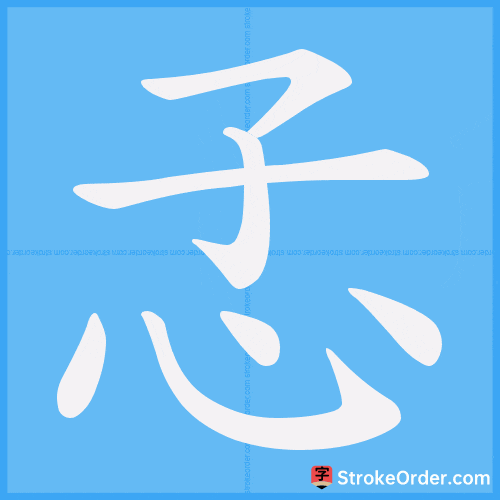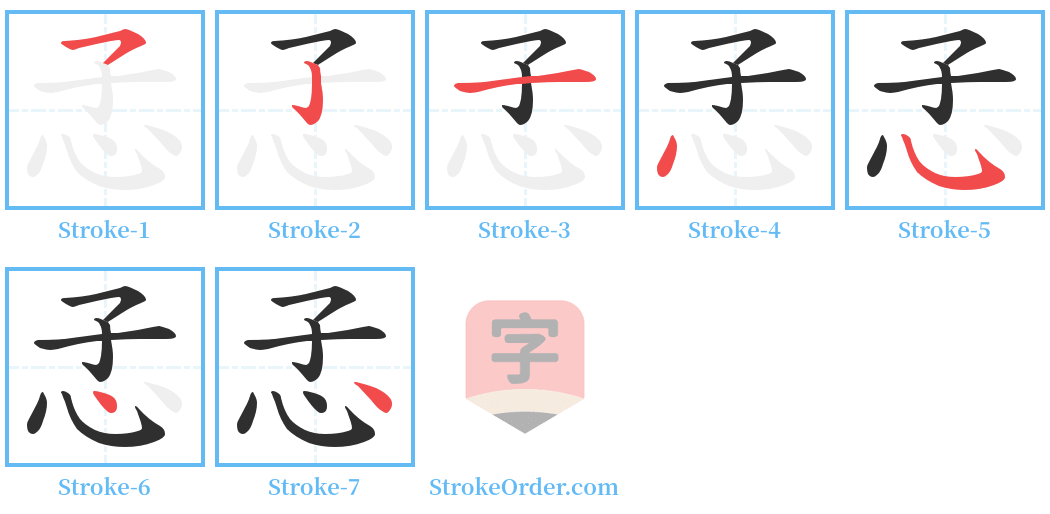孞 Stroke Order
Animated Stroke Order of 孞

Stroke Order Diagrams for 孞

Information of 孞
Pinyin
xìn
Radical
子
Strokes
7 strokes
Usage
★★
Definition
孞:
1. Same as "信" (xìn; trust, belief).
1. 同“信”。
Same as "信".
《改併四聲篇海•子部》引《搜真玉鏡》:“孞,音信。”
"孞" is pronounced like "信". According to "海", "孞" is synonymous with "信".
《字彙補•子部》:“孞,同信。”
"孞" is the same as "信".
2. (Adjective) Ideogram; composed of the elements "人" (person) and "言" (speech). A person's speech should be honest.
Original meaning: sincere and heartfelt.
1. 本义:真心诚意
Original meaning: true heart and sincerity.
2. 同本义信,诚也。——《说文》
Same as the original meaning of trust, which is sincerity. — "Shuowen Jiezi"
3. 有诸已之谓信。——《孟子》
Trust is when words align with intentions. — "Mengzi"
4. 信者,诚也。专一不移也。——《墨子经》
Trust means sincerity and steadfastness. — "Mozi"
5. 定身以行事谓之信。——《白虎通·情性》
Committing oneself to actions is what we call trust. — "Baihu Tong"
6. 期果言当谓之信。——《国语·晋语》
Expectation met by words is called trust. — "Guoyu"
7. 民不求其所欲而得之谓之信。——《贾子道术》
When people obtain what they desire without seeking it, it is called trust. — "Jiazi Daoshu"
8. 信誓旦旦。——《礼记·经解》
Trust is sworn sincerely. — "Liji"
9. 反贼无信!吾不幸误中汝奸计也!——《三国演义》
A traitor is without trust! I am unfortunate to have fallen into your plot! — "Romance of the Three Kingdoms"
10. 牺牲玉帛,弗敢加也,必以信。——《左传·庄公十年》
Sacrifices of jade and silk cannot be added; they must be done with trust. — "Zuo Zhuan"
11. 信而见疑。——《史记·屈原贾生列传》
Trust leads to suspicion. — "Records of the Grand Historian"
12. 则是无信。——《世说新语·方正》
Then it is without trust. — "Shishuo Xinyu"
Also: 信行 (xìnháng; credit; keeping promises), 信人 (xìnrén; a person who keeps promises).
Other examples: Trust in action; a trustworthy person.